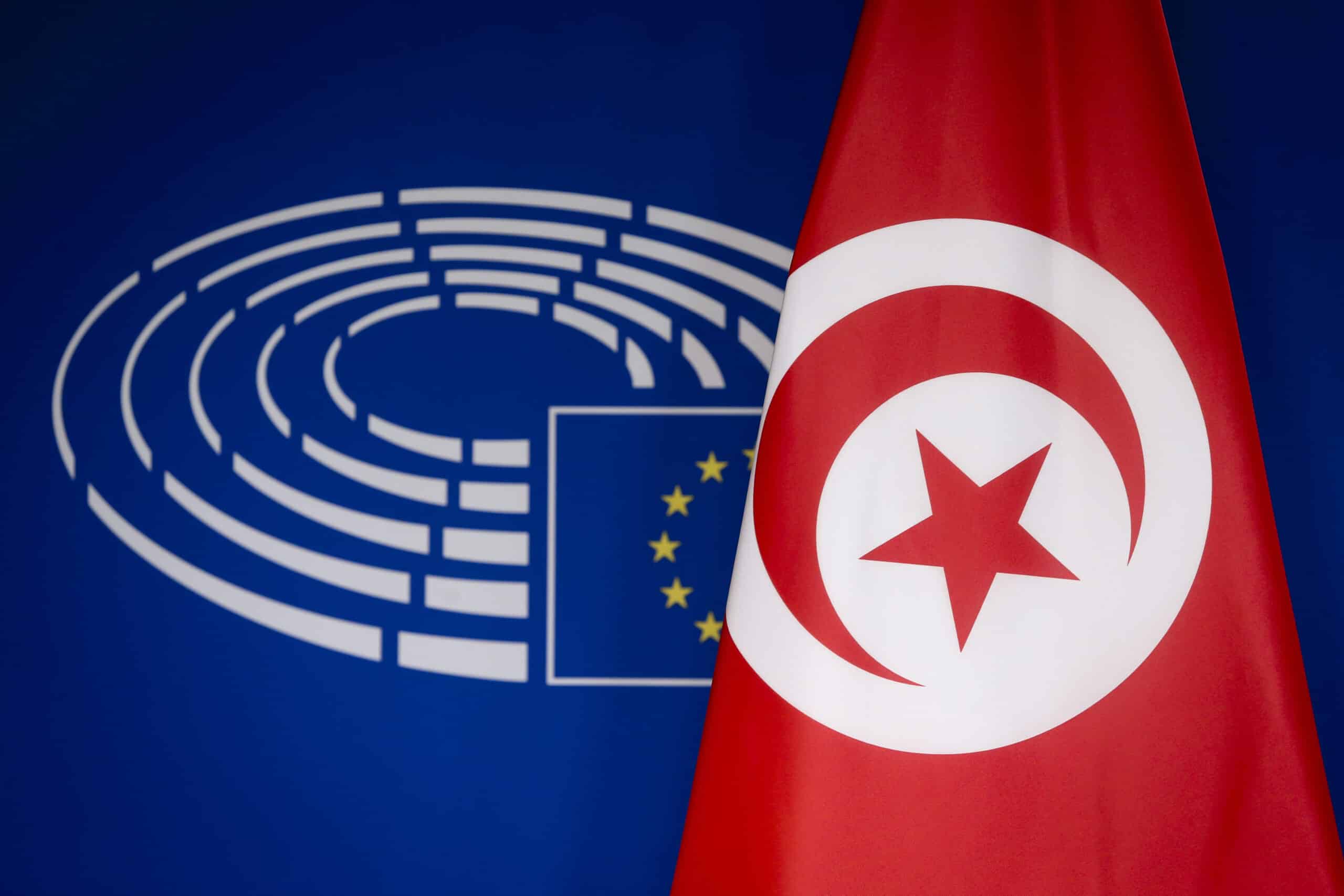Source: Martin Schulz
The European Union is considering providing Tunisia with about 900 million euros to support its economy, in exchange for improved border control and measures to combat human smuggling. Ursula von der Leyen, the head of the European Commission, has announced that an initial 150 million euros in support will be provided right away once the necessary agreement is reached.
During a visit to Tunisia last Sunday, von der Leyen was accompanied by Dutch Prime Minister Mark Rutte and Prime Minister Giorgia Meloni of Italy. Meloni expressed concerns about a potential rise of refugees and migrants from North Africa if Tunisia’s financial stability is not ensured. Emphasizing the importance of border management, search-and-rescue operations, and the humane repatriation of migrants, von der Leyen states that the EU’s primary focus is to allocate 100 million euros to Tunisia for these purposes. The European Commission’s official statement highlighted the shared priority of combatting illegal migration to and from Tunisia, preventing loss of life at sea, and addressing human smugglers and traffickers.
Von der Leyen further underscored that the EU is Tunisia’s primary trade and investment partner and has supported the country’s democratic journey since it initiated the Arab Spring uprisings in 2011. Prior to the meeting, President Kais Saied voiced his opposition to his country solely shouldering the responsibility of being a border guard for other nations during his visit to the port city of Sfax, a significant departure point for migrants attempting to reach Italy by sea.
Political and economic crisis
Tunisia has been grappling with a severic political crisis since July 25, 2021, when President Saied implemented extraordinary measures that included dismissing the government, arresting critics and opposition figures, dissolving the parliament and judicial council, and consolidating political power under his authority. Additionally, the country is currently facing economic challenges, with an inflation rate of 10 percent. Tunisia’s economy heavily relies on tourism, which was severely impacted by the COVID-19 pandemic. Last year, Tunisia secured a loan agreement with the International Monetary Fund (IMF), worth around $2 billion. However, progress on the loan has stalled as President Saied opposes the necessary reforms concerning to state-owned enterprises, the restoration of political institutions and government subsidies on basic commodities.
The EU-Tunisia negotiations have gained increased urgency since Thursday, particularly in light of the recent agreement reached by 27 EU minsters after six years of negotiations on new European asylum, rules. One of its components is the return of rejected asylum seekers to “safe third countries,” which according to the EU, includes Tunisia. Currently, asylum seekers are only required to be returned to countries where they have previously resided. However, the new rules will relax this requirement, stating that it will suffice if a person has visited the country in question during transit.
Increasing flow of refugees
The influx of refugees has been on the rise, prompting concerns and the need for swift action. On 21 February, President Kais Saied gave a speech urging for strict measured by Tunisian security forces against individuals from sub-Saharan Africa. He accused migrants of participating in a deliberate effort to “repopulate” Tunisia and expressed worries about potential changes in the country’s demographic composition. He voiced concerns about Tunisia becoming “another African country that is no longer part of the Arab and Muslim nations.” He warned that this would be accompanied by “violence, crime and unacceptable practices.” Following his speech, hundreds of people were arrested in large-scale police actions, and racist attacks increased sharply across the country.
In recent months, the Tunisian Coast Guard has witnessed an unprecedented number of refugee bodies washing ashore. They recently reported the recovery of nine bodies and the rescue of 20 individuals after their boat sank off the coast of Monastir while attempting to reach Italy. In March, 29 people lost their lives in an attempt to cross to Italy from Sfax. In April, the coast Guard reported the discovery of 210 bodies along Tunisia’s coastline in less than two weeks.
Tunisia political café
Want to learn more about the migration deal with Tunisia, or the democratic decline in the country? Then watch our political café back on youtube on 27 June, featuring among others, PvdA member of parliament Kati Piri, Groenlinks member of European Parliament Tineke Strik and investigate journalist Fairouz Ben Salah!
Author: Manouk Bronzwaer

